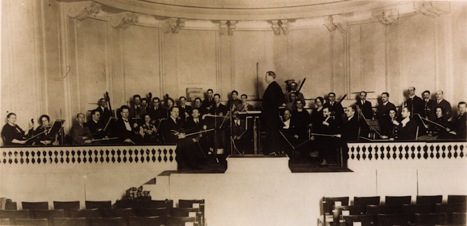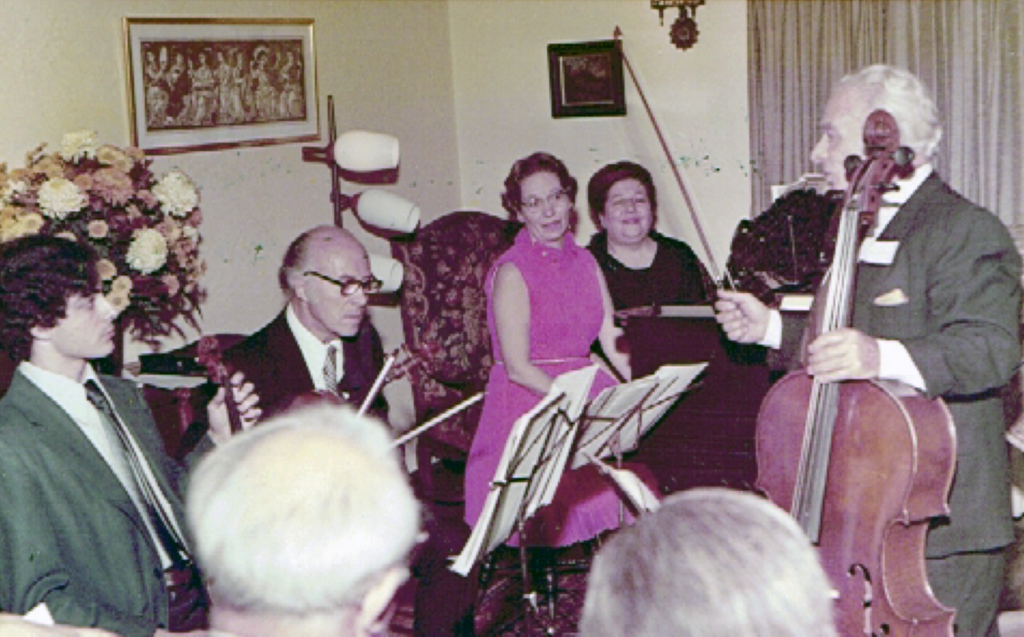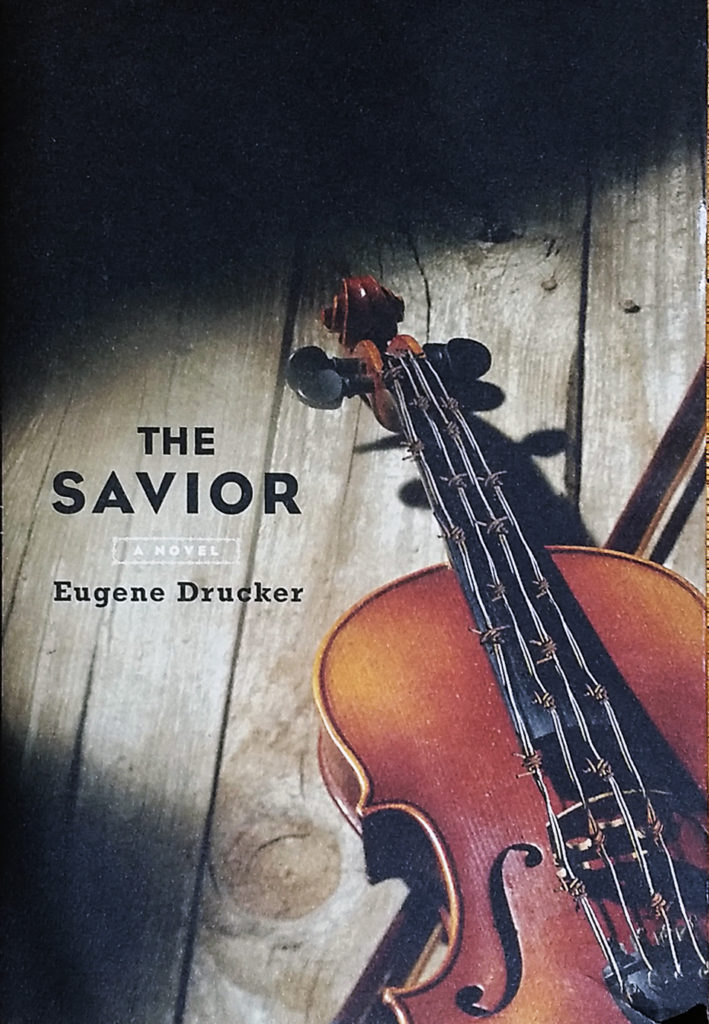Andrés San Millán, Theatre Artist
Stephanie Mercedes, Visual Artist
Eugene Drucker
Musician
Violinist finishes work started by father, stopped by Nazis”
Award-Winning Violinist Finished Father’s Piece That Nazis Broke Up
When the Nazis Stopped My Father Playing Brahams
The headlines above are but a few of many that highlighted the cultural news in the spring of 2015. Thanks to these publications, we contacted Eugene to tell him about The Jüdische Kulturbund Project. Fortunately he responded. He agreed to participate in our project, first to an interview and then months later to perform Bach’s Sarabande and Chaconne for our project’s public program Playing for Life: Art Under Tyranny’s at the Museum of Jewish Heritage in February 2016.
Eugene Drucker, a founding member of the Emerson String Quartet and nine-time Grammy Award winner, performed the Brahms Violin Concerto in D Major, Op. 77, which his father Ernst was not allowed to play in its entirety in 1933. Three concerts took place in Tel Aviv and Raanana, Israel to commemorate the segregated federation of Jewish musicians in Nazi Germany. Like the “Mystic Chords of Memory” referred to by President Lincoln in his first inaugural address, Eugene Drucker restored a bond that was broken by the Nazis 80 years before.
While Eugene Drucker is one of the fortunate contemporary artists in our world who does not personally experience living under oppression, we wanted to share his insights and creative energies in response to his father’s experiences as a young musician in Nazi Germany and later as a member of the Jüdische Kulturbund.
In April 1933, the Nazis imposed the Law for the Restoration of the Professional Civil Service, which resulted in the dismissal of most Jewish teachers, professors and judges. Similar legislation followed, preventing Jews from practicing medicine or law. These decrees had an indirect effect on the lives of musicians as well. Preparing for his final performance before graduating from the Musikhochschule (Conservatory) in Cologne that spring, Ernst Drucker arrived at school one day to find that his name had been stricken from the program. Understandably upset, he asked his violin teacher Bram Eldering to help. Eldering (who, as a young man, had been friendly with Brahms) did not hesitate to stand up to the Nazis on behalf of his Jewish pupil. He threatened to resign from the faculty if they did not permit his student Ernst to perform the Brahms Concerto. The Nazis yielded, but with a compromise: Ernst would be allowed to play only the first movement of the concerto. Though the compromise was insulting, Eldering and his student had no choice but to agree to the Nazis’ terms.
From what Eugene Drucker understands, the performance was a huge success. As his father came offstage, Eldering said to him, “Meisterlich!” (“Masterful”). The German newspapers wrote excellent reviews, especially the Kölner Stadt-Anzeiger. However, the Nazi paper, the Völkische Beobachter, printed a one-sentence critique: “It is beyond our comprehension that the immortal German violin concerto of Brahms could be entrusted to a Jew.”

Within a year, the young violinist left Cologne and many of his Gentile friends to join the Jewish Kulturbund, becoming one of the concertmasters of the organization’s orchestra in Frankfurt, which was led by conductor Wilhelm Steinberg. There he had the opportunity to perform the complete Brahms Concerto with Steinberg, for whom he had enormous respect. He also played the Beethoven and Mendelssohn Concertos, and Mozart’s Sinfonia Concertante for violin and viola under the baton of Julius Prüwer; the performance of the Mendelssohn Concerto was probably the event to which Uri Toeplitz referred in his interview.
While playing for the Frankfurt Kulturbund, he auditioned for Bronislaw Huberman and was invited to join the Palestine Symphony Orchestra in 1936. He decided instead to emigrate to New York with his family in September 1938. For the next few years he played in various orchestras, including Indianapolis, Cleveland, the NBC Symphony, and the Busch Chamber Players. In 1943 he was drafted into the U.S. Army and served stateside as a violinist in the Army-Air Force Symphonette. After the war he played second violin in the world-renowned Busch Quartet for two years, and then in 1947 joined the Metropolitan Opera Orchestra. He continued at the Met for the next 37 years, until his retirement in 1984.
Young Ernst Drucker aspired to a solo career, a goal he probably would have fulfilled if the Nazis had not seized power in Germany. He was not able to realize this ambition after his immigration to the U.S. But Eugene acknowledges that unlike millions of Jews in Europe, his father was lucky to have survived, along with his extended family, and to have made a living in his chosen profession. Eugene said his father spoke well of the Kulturbund, and it was only after his father died that he became aware of some questions that have been raised about the organization with the benefit of hindsight. He addressed several of these questions in our interview excerpt #1, below.

Eugene thinks that “some of the intensity of my father’s relationship to his musical tradition, a web of concerns that bordered on obsession, rubbed off on me. He may have been somewhat mellower had he not grown up with an ever-increasing existential threat hovering in the background of his consciousness.”
Discussing the impact of technology on today’s artists living under oppressive political regimes, Eugene expressed his belief that oppression is more difficult to hide than it was in the past: we know more readily when an atrocity occurs somewhere. He pondered the benefits of technological progress in those parts of the world that still suffer under the yoke of tyranny, describing the merits of social media like FaceBook and Twitter, which allowed us to know what was happening during the Arab Spring and in the Maidan in Kiev, among other places. Protesters made sure their voices were heard and their struggles were recorded, and the world would know if they died while confronting the heavy hand of authority. “But we also know that the Arab Spring has ultimately failed to fulfill its seeming promise of just, pluralistic societies in the Middle East. What a shame, after so many lives were lost in the struggle against authoritarian regimes throughout that region. Returning to the subject of the arts: I assume that technological advances have also made it somewhat easier for performers, writers and visual artists in totalitarian countries to reach audiences outside their national boundaries. But they still face a lot of problems within their borders, if they have not chosen to or have been unable to emigrate.”
Eugene recognizes the grave danger for artists who do not follow a “fanatical interpretation of Islam” while living under the domination of ISIS and other intolerant groups. He laments the loss of many cultural treasures of the Middle East. Eugene also considers the plight of dissident artists in other parts of the world, like some living in China, such as Ai Wei Wei.

In addition to his multifaceted musical activities, Eugene Drucker has also written a novel called The Savior. In the book, Eugene drew from his father’s stories about the Kulturbund and his feelings for his loyal Gentile friends in the Germany of the 1930s. He takes the opportunity in The Savior to explore the moral and psychological dilemmas that might have confronted an “average” German — a man who, as he described his protagonist, was neither a hero nor a villain.
Eugene believes that it is important to honor the brave artists, like his father, and arts aficionados who “strove valiantly to maintain their dignity and to preserve the cultural tradition that had been so precious to them. The Kulturbund enabled those who survived the war and the Holocaust to contribute more to the cultural lives of the countries that they eventually were able to call their homes.”
While we have not found an opportunity yet to film an interview with Eugene Drucker, we wanted to share excerpts (below) from his written interview with us in the spring, 2015.
Exerpt #1
“Critics of the Kulturbund asked whether the ability to continue with their cultural life enabled German Jews to persist in a dangerous delusion that their lives were not threatened. I know that my father’s family made strenuous efforts to establish contact with distant relatives in New York, so that they’d have an affidavit and a chance at being accepted by the U.S. immigration authorities. To my knowledge, every country had immigration quotas for Jews; I don’t believe that most German Jews were simply attending concerts and visiting art exhibitions, blissfully unaware that things were going from bad to worse. However, it is true that some German Jews who had gone to Palestine then went back to Germany in the 1930s, which turned out to be a fatal mistake.”
Excerpt #2
“I think the Kulturbund did help artists, administrative staff and audience members survive, thrive spiritually and participate in great artistic events as a form of resistance. Some artists or audience members may have been lulled into a false sense of security because their lives were not entirely bleak before the war started; still, I’d like to believe that, on balance, the Kulturbund was much more a force for good than an enabler of evil.”
Excerpt #3
“Musical expression is one of the most basic manifestations of the human spirit. There are so many different kinds of folk and art music from all over the world. Without attempting to analyze how Western classical music was able to fuse melody, rhythm and harmony through large-scale structure into extremely powerful statements on the human condition, I will only say that for most people who are sensitive to the exaltation that the greatest music can provide, life would be much the poorer without it.”
